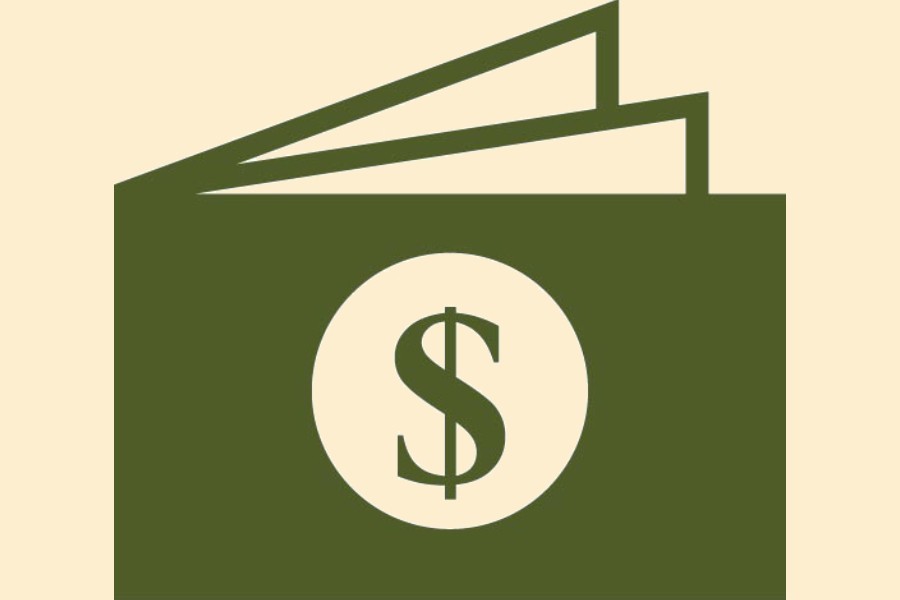Bangladesh's commercial banks are going to fix varied uniform rates for importers, exporters and overseas exchange houses to help manage the ongoing foreign-exchange volatility.
Under the proposed rates, all the authorised dealer (AD) banks will offer maximum Tk 108 per dollar to the overseas exchange houses for receiving inward remittance instead of maximum Tk 113.
The banks will also quote maximum Tk 99 for procuring export proceeds from the exporters instead of maximum Tk 101 while the rate for importers will be fixed in keeping with the weighted average rates of the exchange houses and the exporters.
Such rate caps were discussed at a joint meeting of the Association of Bankers, Bangladesh (ABB) and the Bangladesh Foreign Exchange Dealers' Association (BAFEDA) at the central bank headquarters in Dhaka on Thursday with Bangladesh Bank (BB) deputy governor Ahmed Jamal in the chair.
The proposed rates are expected to be finalized at a meeting of top leaders of ABB and BAFEDA, scheduled to be held Sunday at the Sonali Bank Limited headquarters in Dhaka.
The leaders of ABB and BAFEDA will disclose the uniform separate rates for importers, exporters and overseas exchange houses through a press briefing after the meeting, according to a senior member of the BAFEDA.
"We've taken the decisions at a meeting held at the Sonali Bank Limited headquarters on Thursday evening," the BAFEDA member told the FE.
Earlier in the day, the country's top bankers discussed different issues, like uniform rates for importers, exporters and overseas exchange houses, for brining stability in the country's forex market.
The high-ups of the BB assured the top bankers at the meeting that the central bank would help the ABB and BAFEDA in this connection, according to sources.
The central bank will extend its support for introducing a 'market-driven' exchange-rate system to help revamp particularly the inter-bank transactions, they added.
Currently, all the scheduled banks fix their exchange rates for smaller and retail transactions, including inter-bank ones, in line with the central bank's advice.
However, larger corporate transactions are priced in line with the much higher sourcing costs of overseas remittance - made by international exchange houses.
The bankers also informed at the meeting that they are now fixing the selling and buying rates of the foreign exchanges considering the fresh spread in line with the BB's advice.
On August 14, the central bank asked bankers at a meeting for a review of the spread between sale and purchase rates of the greenback, limiting the margin to Tk 1.0 to help bring stability in the country's forex market.
"We've discussed taking policy decisions for the future," ABB Chairman Selim R F Hussain told reporters after the meeting. "We also expect that the forex market will be stabilized within the next two months."
Meanwhile, the central bank is providing the US dollar as foreign-currency liquidity support to scheduled banks continuously for managing the forex-market volatility.
As part of the ongoing moves, the central bank sold $80 million more directly to eight commercial banks on Thursday to help them meet a growing demand for the greenback as global price rises have led to import-cost escalation with its resultant pressures on reserves of Bangladesh, as also of many other countries. The BB has so far injected $2.76 billion from the reserves directly into commercial banks as liquidity support for import payments in the current fiscal year (FY), 2022-23.
In FY22, the central bank sold $7.62 billion from the reserves to the banks for the same purpose.
On the other hand, Bangladesh's forex reserves fell further to over US$37.0 billion on Thursday after making a routine payment worth $1.73 billion to the Asian Clearing Union (ACU) against imports made during the July-August period.
The forex reserves came down to $37.06 billion on the day from $38.99 billion on the previous working day, according to the BB's latest statistics.
"We've already remitted the funds to the ACU headquarters in Tehran in line with the existing provisions of the union," a BB senior official told the FE.
According to the existing provisions, outstanding import bills and interest thereon are to be paid by the member countries at the end of every two months.
The ACU is an arrangement involving Bangladesh, Bhutan, India, Iran, Myanmar, Nepal, Pakistan, Sri Lanka and the Maldives, through which intra-regional transactions among the participating central banks are settled on a multilateral basis.
The union started its operation in November 1975 to boost trade among the member countries. Bangladesh and Myanmar joined the union as the sixth and seventh members in 1976 and 1977 respectively.
Bhutan joined the ACU in December 1999 and the Maldives in January 2010.


